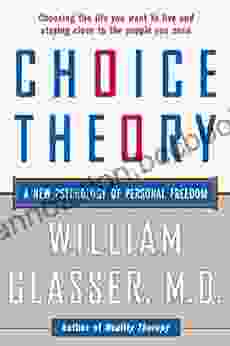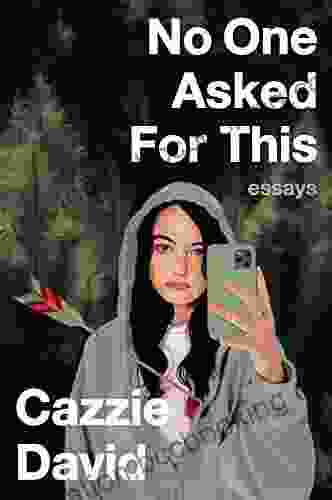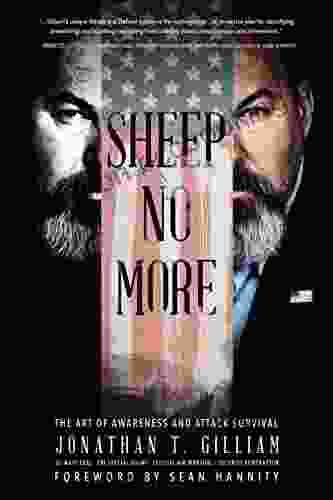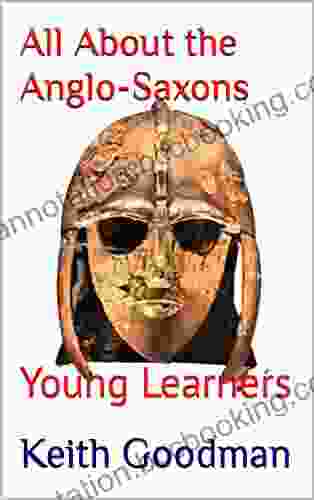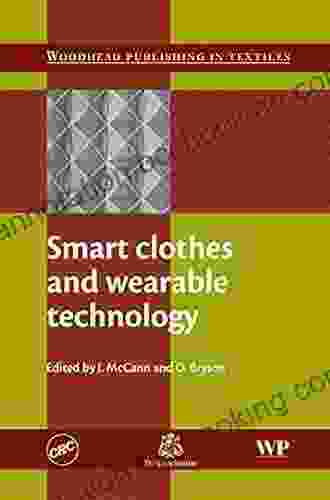Unlock the Secrets of Personal Freedom with Choice Theory: A Transformational Psychology

In a world where external circumstances often seem to dictate our actions and emotions, it can be easy to feel trapped and powerless. However, groundbreaking psychologist Dr. William Glasser believed that we all have the power to create the lives we desire. His revolutionary Choice Theory offers a practical, empowering framework for understanding and changing our behavior.
The Pillars of Choice Theory
Choice Theory is based on several key pillars that challenge traditional psychological beliefs:
4.5 out of 5
| Language | : | English |
| File size | : | 1188 KB |
| Text-to-Speech | : | Enabled |
| Screen Reader | : | Supported |
| Enhanced typesetting | : | Enabled |
| X-Ray | : | Enabled |
| Word Wise | : | Enabled |
| Print length | : | 364 pages |
- We are responsible for our own behavior: No matter our circumstances, we always have the choice to act in a way that aligns with our values and goals.
- All behavior is purposeful: Every action, even seemingly impulsive ones, is driven by our desire to get what we want.
- We can control our beliefs: While we can't always control our circumstances, we can control how we interpret and respond to them.
- The only way to change behavior is to change beliefs: By challenging and replacing limiting beliefs with empowering ones, we can unlock new possibilities.
The Power of Choice
At the heart of Choice Theory lies the idea that we have the power to make choices that shape our lives. Glasser argues that we are not victims of our past or our circumstances. Instead, we are responsible for our present actions and the future we want to create.
The book "Choice Theory: A New Psychology of Personal Freedom" delves into the practical application of these principles. It provides readers with tools and strategies for:
- Identifying their core values and goals
- Challenging and changing limiting beliefs
- Making conscious choices that support their well-being
- Improving relationships with others
- Achieving greater personal freedom and fulfillment
Benefits of Choice Theory
Adopting Choice Theory has numerous benefits, including:
- Increased self-awareness: By understanding the principles of Choice Theory, readers gain a deeper insight into their motivations and behaviors.
- Empowerment: Choice Theory empowers individuals to take control of their lives by showing them that they have the power to make choices that lead to positive outcomes.
- Improved relationships: Choice Theory teaches readers how to communicate effectively, resolve conflicts, and build stronger relationships with others.
- Reduced stress and anxiety: By learning to respond to external circumstances with choice rather than reaction, readers can reduce stress and anxiety levels.
- Greater life satisfaction: Choice Theory provides a path to greater life satisfaction by helping readers create a life that aligns with their values and goals.
Who Should Read This Book?
"Choice Theory: A New Psychology of Personal Freedom" is an essential read for anyone who:
- Is tired of feeling powerless and wants to take control of their life
- Wants to improve their relationships and communicate more effectively
- Struggles with stress, anxiety, or low self-esteem
- Is seeking a practical and empowering approach to personal growth
- Aspires to live a life of greater fulfillment and purpose
"Choice Theory: A New Psychology of Personal Freedom" is a transformative work that empowers readers to break free from limiting beliefs and create the life they desire. By embracing the principles of Choice Theory, individuals can unlock their potential, improve their relationships, and achieve greater personal freedom and fulfillment.
Whether you are struggling with specific challenges or simply seeking a deeper understanding of yourself and your behavior, this book provides a valuable roadmap for personal growth and transformation. Embark on this empowering journey today and discover the power of choice to create a life of greater freedom, purpose, and fulfillment.
4.5 out of 5
| Language | : | English |
| File size | : | 1188 KB |
| Text-to-Speech | : | Enabled |
| Screen Reader | : | Supported |
| Enhanced typesetting | : | Enabled |
| X-Ray | : | Enabled |
| Word Wise | : | Enabled |
| Print length | : | 364 pages |
Do you want to contribute by writing guest posts on this blog?
Please contact us and send us a resume of previous articles that you have written.
 Book
Book Novel
Novel Page
Page Chapter
Chapter Text
Text Story
Story Genre
Genre Reader
Reader Library
Library Paperback
Paperback E-book
E-book Magazine
Magazine Newspaper
Newspaper Paragraph
Paragraph Sentence
Sentence Bookmark
Bookmark Shelf
Shelf Glossary
Glossary Bibliography
Bibliography Foreword
Foreword Preface
Preface Synopsis
Synopsis Annotation
Annotation Footnote
Footnote Manuscript
Manuscript Scroll
Scroll Codex
Codex Tome
Tome Bestseller
Bestseller Classics
Classics Library card
Library card Narrative
Narrative Biography
Biography Autobiography
Autobiography Memoir
Memoir Reference
Reference Encyclopedia
Encyclopedia Kamarun Kalam
Kamarun Kalam Benny Lewis
Benny Lewis Janet Margot
Janet Margot King Solomon
King Solomon Lolis Eric Elie
Lolis Eric Elie Johny Pitts
Johny Pitts Frederik Pohl
Frederik Pohl Christopher Hitchens
Christopher Hitchens Kathryn Kellogg
Kathryn Kellogg Gareth James
Gareth James Ga Henty
Ga Henty Bob Palmer
Bob Palmer Mernice Oliver
Mernice Oliver James Grippando
James Grippando Nikol Kontouri
Nikol Kontouri Garr Reynolds
Garr Reynolds Charles Butler
Charles Butler Laura Slinn
Laura Slinn Frederick W Daily
Frederick W Daily Marcel Liebman
Marcel Liebman
Light bulbAdvertise smarter! Our strategic ad space ensures maximum exposure. Reserve your spot today!
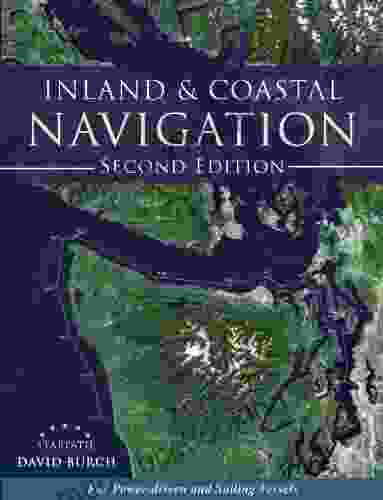
 Nikolai GogolUnlock the Secrets of Navigation: "For Power Driven and Sailing Vessels" 2nd...
Nikolai GogolUnlock the Secrets of Navigation: "For Power Driven and Sailing Vessels" 2nd... Curtis StewartFollow ·15.2k
Curtis StewartFollow ·15.2k Mark MitchellFollow ·3.6k
Mark MitchellFollow ·3.6k Kazuo IshiguroFollow ·15.8k
Kazuo IshiguroFollow ·15.8k Ian PowellFollow ·4.1k
Ian PowellFollow ·4.1k Christian CarterFollow ·2.8k
Christian CarterFollow ·2.8k Cody BlairFollow ·13.1k
Cody BlairFollow ·13.1k Yukio MishimaFollow ·12.4k
Yukio MishimaFollow ·12.4k George R.R. MartinFollow ·16.7k
George R.R. MartinFollow ·16.7k
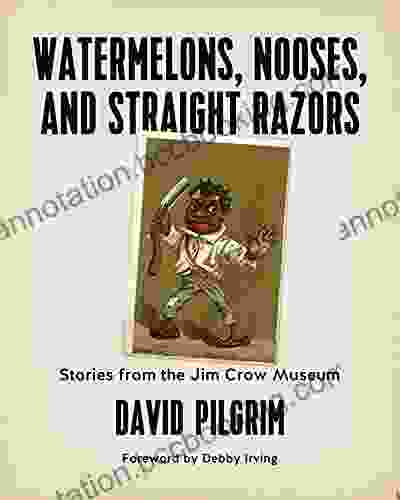
 Voltaire
VoltaireStories From The Jim Crow Museum: Unveiling the Haunting...
A Journey into the Depths of...
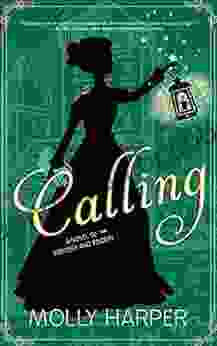
 F. Scott Fitzgerald
F. Scott FitzgeraldCalling Sorcery And Society: Illuminating the...
: The Alluring Embrace of Sorcery ...

 Marcel Proust
Marcel ProustBranding Bud: Unveiling the Green Rush
As the legalization...
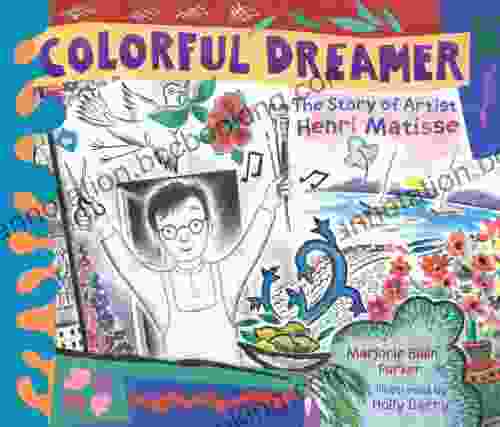
 Henry Wadsworth Longfellow
Henry Wadsworth LongfellowColorful Dreamer: The Story of Artist Henri Matisse
Henri Matisse was a French artist...
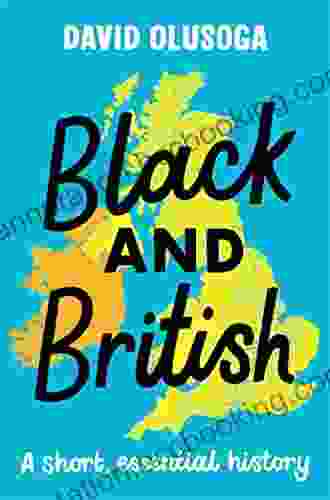
 Adrian Ward
Adrian WardDelving into the Tapestry of Black British Identity: A...
In the realm of historical...
4.5 out of 5
| Language | : | English |
| File size | : | 1188 KB |
| Text-to-Speech | : | Enabled |
| Screen Reader | : | Supported |
| Enhanced typesetting | : | Enabled |
| X-Ray | : | Enabled |
| Word Wise | : | Enabled |
| Print length | : | 364 pages |


